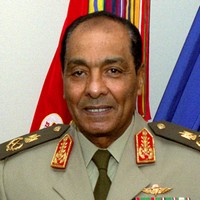The elections in Egypt are over. Their conclusion marks the passing not only of Egypt’s democratic experiment but also of a grand opportunity to confront larger questions regarding Islam and society.
As one of the more able chroniclers of the aborted Egyptian revolution puts it, what started with “one hell of a bang” is ending with a whimper.
First, the presidential election’s wide-open first round left voters with two candidates, Mohamed Morsi and Ahmed Shafik, who together deflated whatever enthusiasm most Egyptians still had for democracy. Morsi was the second-choice candidate for the Muslim Brotherhood, an organization whose popularity in Egypt has fallen sharply in the past year. Shafik represented the “felool” -- the derogatory term applied to former officials of the detested ancien régime. Neither candidate excited those who last year filled Tahrir Square in January and February demanding change.

